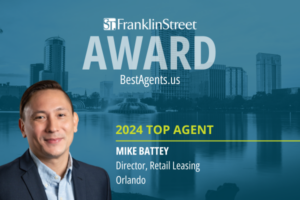I recently had a meeting with a market manager for one of the largest marketers of commercial insurance in the world. We discussed the topic of unoccupied vs. vacant industrial buildings and the implications on commercial insurance rates and payment for claims. He made a few critical points:
1. Unoccupied industrial buildings have fewer issues regarding claims payment. An unoccupied building may only have a single desk, one person occasionally on site and an active occupational license.
2. Vacant industrial buildings are completely empty with no one on site and the occupational license has expired. Most insurance carriers require the property to be identified as vacant and have insurance purchased for such. Misidentifying a building can be a critical barrier to getting paid if you suffer a loss.
3. Another factor that can affect getting paid on an insurance claim are unauthorized tenant improvements that have been done without a building permit or are in violation of building codes. The classic example is office space in a warehouse which has not been built to code. It is the property owner’s responsibility to be code compliant. Failure to spend a few thousand dollars to be code compliant may instead cost you millions in a claim.
4. Industrial property owners should challenge their co-insurance clauses. Often the co-insurance percentage can be improved or removed by negotiation.
Furthermore, vacant buildings lose their grandfather or acquired rights and conditional uses in most places about 180 days after the occupational license (Business Tax License) expires. A property owner is often surprised by the loss of a conditional use for outside storage or a particular industrial use by letting the occupational license expire. It makes sense to keep an occupational license active for your property to prevent loss of your rights. This preserves your acquired rights and prevents your property from being described as vacant.
In order to understand these complex issues, you need an experienced industrial real estate professional. Franklin Street, a full-service commercial real estate firm, was established in 2006 and serves clients around the Southeast from its offices in Tampa, Orlando, Jacksonville, Fort Lauderdale, Miami and Atlanta. Laurence Kahn can be reached at [email protected] or 407.458.5419.




